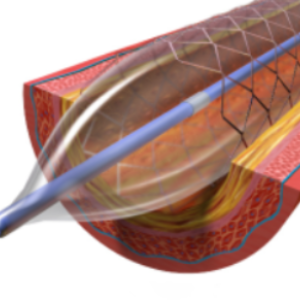
Sleep apnoea may increase the risk of serious complications in people who have undergone angioplasty to clear blocked heart arteries, researchers say.
A common and chronic condition
In angioplasty, also called percutaneous coronary intervention (PCI), blocked heart arteries are re-opened using a thin catheter inserted through the groin or wrist.
The new study included 241 patients who underwent angioplasty. Their average age was 64 years, and the patients were followed for about six years.
Of those patients, slightly more than half had sleep-disordered breathing, which includes sleep apnoea and snoring. Sleep apnoea is a common and chronic condition, according to the National Heart, Lung, and Blood Institute (NHLBI). In sleep apnoea, breathing stops or becomes shallow during sleep. Breathing pauses can last from a few seconds to minutes, the NHLBI says.
Read: New insights into who's at risk with angioplasty
Sleep-disordered breathing was detected through heart and respiratory monitors used overnight after the procedure, the researchers said.
During the follow-up, 21 percent of patients with sleep-disordered breathing had major heart events, including heart attack, stroke and heart failure. In people who didn't have sleep-disordered breathing troubles, the heart complication rate was just 8 percent, the study found.
Important risk factor for heart disease
People with sleep-disordered breathing were also more likely to die during the follow-up, the findings showed. However, the study can only show an association between these factors, not a direct cause-and effect link.
The findings were published online in the Journal of the American Heart Association.
"Sleep-disordered breathing, which includes snoring and sleep apnoea, has long been recognised as an important risk factor for heart disease," study author Dr Toru Mazaki said in a journal news release.
"However, there is limited awareness of sleep-disordered breathing among cardiologists who care for PCI patients," said Mazaki, who is chief physician in the department of cardiology at Kobe Central Hospital in Japan.
Read: Sleep apnoea raises heart risks
Mazaki said the study results suggest that sleep-disordered breathing problems are an important risk factor for stroke, heart failure and more after angioplasty.
"Doctors and patients should consider sleep studies [after an angioplasty] to rule out sleep-disordered breathing or take necessary precautions to restore healthy breathing during sleep," Mazaki said.
The standard treatment for sleep apnoea is continuous positive airway pressure, or CPAP. A CPAP mask pushes air into the person's airways while asleep. Additional options include dental devices and surgery.
Read more:




 Publications
Publications
 Partners
Partners











